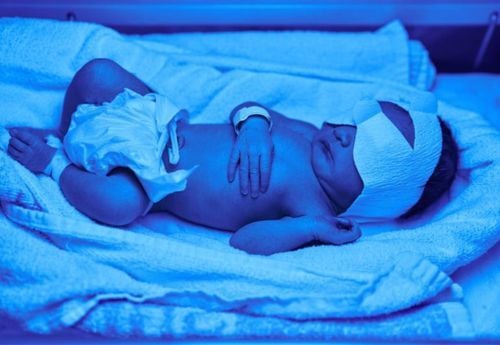Neonatology is a specialized field within pediatrics that focuses on the medical care and management of newborn infants, particularly those who are premature or have other medical complications. Neonatologists, also called pediatric critical care doctors, are physicians who specialize in providing comprehensive care to newborns, from their birth until they are stable and ready to transition home. With a strong emphasis on early medical care, intervention, and meticulous monitoring, neonatology aims to ensure optimal outcomes for newborns, promoting their growth, development, and overall well-being. This field encompasses a broad range of expertise, including the management of respiratory distress, infections, congenital anomalies, and other conditions unique to the newborn period. Neonatology plays a crucial role in safeguarding the health and future of some of the tiniest patients, providing them with the specialized care they need during their initial days, weeks, and months of life.
Quick Navigation Links + FAQs
- What is a Neonatologist?
- What do Neonatologists do?
- Steps to becoming a Neonatologist
- How long is Neonatology residency length?
- How long is Neonatology fellowship?
- Neonatologist salary - How much do Neonatologists make?
- How many years to become a Neonatologist?
- Is becoming a Neonatologist worth it?
- Getting started in medicine
What is a Neonatologist?
A neonatologist is a specialized physician who focuses on providing medical care and treatment to newborn infants within the hospital. They work closely with the neonatal intensive care unit (NICU) team, which may include nurses, respiratory therapists, nutritionists, and other healthcare professionals. They provide comprehensive and specialized care to ensure the well-being and continued development of newborns. Some examples of patients that neonatologists may take care of include:
- Premature infants that are delivered before 37 weeks of pregnancy.
- Newborns with life-threatening illnesses, such as infections, heart defects, or breathing issues.
- Babies born with congenital abnormalities or genetic diseases.
- Newborns with critical medical conditions who require specialized support and intensive care.
What medical conditions do Neonatologists treat?
Neonatologists treat a wide range of medical conditions. Some of the most common include:
- Premature birth: One of the most common reasons neonatologists take care of newborns is due to premature birth. Infants born before 37 weeks of pregnancy are premature and frequently have a variety of conditions such as undeveloped lungs and organs, making breathing, eating, and controlling body temperature difficult.
- Breathing problems: Breathing disorders such as respiratory distress syndrome can be a challenge for newborns, particularly those born prematurely. Neonatologists use ventilators, oxygen, medications such as surfactant, and medical procedures to help their patients be able to breathe effectively.
- Congenital malformations: A neonatologist can treat medical defects that are present at birth and impact all organ systems. This includes congenital malformations and diseases (those that are present at birth). Some examples of congenital diseases include chromosomal anomalies, digestive system deformities, structural abnormalities in the brain or spine, and heart problems.
- Infections: Because of their undeveloped immune systems, newborns are highly susceptible to infectious illnesses. Antibiotics and other supportive care is necessary to diagnose and treat various infections, including meningitis, blood infections (bacteremia), and pneumonia.
- Metabolic disorders: Some babies may have problems with the metabolism of food or nutrients, which can result in low blood sugar or jaundice (yellow skin caused by a build up of bilirubin). These diseases are treated by neonatologists using specific types of foods, drugs, and other therapies.
- Seizure disorders: Newborns who have had brain damage or other neurological abnormalities are more susceptible to seizures. To control seizures, neonatologists try to determine the underlying cause and administer the proper medicine or other therapies.
- Birth injuries: Trauma to babies during the birth process can impact the brain, spinal cord, or skeleton. To manage an injury further, neonatologists evaluate the injury, provide supportive care, and work with other specialists such as neurologists or orthopedic surgeons.
- Nutritional needs: Providing neonates with the proper nourishment is essential for their growth and development, especially if they have trouble feeding. Neonatologists administer feedings using tubes, parenteral nourishment (intravenous feeding), or customized formulas when necessary.

How to become a Neonatologist? - Neonatologists education requirements
In order to become a neonatologists, there are many years of training as well as other requirements following graduation from college and receipt of a bachelor’s degree. The general steps to becoming a neonatologist are as follows:
- Apply to and Complete Medical School: Enroll in medical school to become a doctor of medicine (MD) or osteopathic medicine (DO). Usually lasting four years, medical school involves both classroom learning and clinical rotations within the hospital.
- Complete Pediatric Residency: Following medical school graduation, one must finish a pediatric residency. This usually requires three years and includes practical training in various pediatric medical specialties.
- Finish Neonatology Fellowship: Following residency, one must finish a fellowship program focused on neonatal-perinatal medicine, also called pediatric critical care, to specialize in neonatology. Fellowships in neonatology typically last three years and include extensive instruction in the treatment of neonates, especially those who are premature.
- Apply for Board Certification: Lastly, one must earn a neonatal-perinatal medicine board certification. Although it’s not technically required, earning board certification can improve one’s resume and employment opportunities as most jobs require it.
How long is Neonatology Residency Length?
Neonatology itself is not a residency program, it is instead a fellowship that is completed following pediatric residence. Thus, the length of neonatology training depends on the length of pediatric residency followed by neonatology fellowship. This includes:
- General pediatrics residency: General pediatrics residency usually lasts three years. During this time physicians will learn about the many different fields within pediatrics such as intensive care, neurology, cardiology, etc.
- Neonatology fellowship: After completing the general pediatrics residency, aspiring neonatologists undergo specialized fellowship training in neonatology. The duration of a neonatology fellowship program is typically three years.
How long is Neonatology fellowship?
Neonatology fellowship is three years long. After completing a four year residency in pediatrics (or, less commonly, internal medicine-pediatrics), aspiring neonatologists embark on a three year intensive fellowship training program to gain the specialized knowledge and skills needed to care for critically ill newborns.
Neonatologist salary - How much do Neonatologists make?
AAMC (American Association of Medical Colleges) reports that Neonatologist’s salary in academic settings is on average $270,000 as an assistant professor, $316,000 as an associate professor, and $372,000 as a full professor. The pay for a neonatologist varies according to their area of expertise, whether they work in a hospital or clinic, and if they work for the government or private practice, among other factors.
How many years of training does it take to become a Neonatologist?
The path to becoming a neonatologist is long and requires many years of studying and training. Following graduation of college, it commonly takes at least 10 years to become a neonatologist. The steps include:
- Completion of medical school: This typically takes four years.
- Completion of a residency program in pediatrics: Residency in pediatrics typically lasts for three years.
- Completion of a fellowship in neonatology: The duration of a neonatology fellowship program is typically three years.
Therefore, the total duration of training to become a neonatologist after completing undergraduate education is typically around 10 years (4 years of medical school + 3 years of pediatric residency + 3 years of neonatology fellowship). However, the number of years of training may vary depending on individual circumstances. For example, some individuals do not need additional time to learn and complete their training, others may choose to take a year off to conduct research or engage in other activities that add to their medical experience.

Is a career in Neonatology worth it?
When considering if a career in neonatology is suited for you, keep the following aspects in mind:
Advantages:
- Meaningful work and career: During a crucial period, neonatologists have the chance to influence the lives of babies and their families significantly. It can be tremendously fulfilling to watch and help nurture delicate babies from being sick to becoming healthy.
- Intellectual challenge: Neonatology is complicated and always advancing, requiring a vast knowledge and continuous education to gain experience. The difficult situations and intellectual stimulation can be alluring for people who do well in high-pressure job settings.
- High demand: The job outlook for neonatologists is favorable for the foreseeable future, and they are in high demand. This results in competitive pay and outstanding job security.
- Collaboration and teamwork: Pediatricians, nurses, and other experts comprise the highly qualified professionals whom neonatologists collaborate closely. This cooperative setting has the potential to be nurturing and thought-provoking.
Disadvantages:
- Emotional toll: Working with critically ill neonates can have a significant emotional toll. Being in challenging circumstances and experiencing loss can be detrimental to one’s mental health at times.
- Demanding work schedules: Neonatologists may have a regular on-call schedule, long work hours, and inconsistent shifts. One’s relationships and personal life may be put under pressure by these long hours.
- Extremely competitive field: Neonatology demands significant medical training and commitment to complete. There are limited residency and fellowship spots are available each year, making the path difficult.
- Stressful atmosphere: Critical events commonly occur and fast judgments are required in NICUs, which are high-pressure settings. For some people, this can be a challenging and stressful situation.
- Risk of burnout: If the psychological and physical strains of the work are not adequately handled, burnout may result. It’s critical to keep a healthy work-life balance in this medical career.
How to get started in Medicine?
Now that you know a little more about Neonatology as a medical subspecialty, it may be a good time to get started on a career in medicine. This begins with applying to a medical school like the University of Medicine and Health Sciences. Your next step forward may be to complete the medical school application form available on our apply now page. If you would like additional information, please visit our popular Caribbean Med School page that answer lots of FAQ's. Otherwise, feel free to ask some questions or schedule a meeting with an admissions representative by going to this page.
Popular and related articles:

|
Family medicine vs Internal medicine |

|
How to become a Forensic Pathologist? |

|
Becoming a Sports Medicine Doctor |

Callie Torres is a double board-certified physician, a freelance health and medical writer, as well as an author of many peer-reviewed medical articles.
















